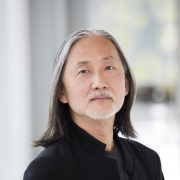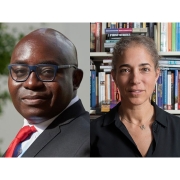Researchers Solve a Decades-old Question About Glass Transitions
If one were to take a liquid—any liquid—and cool it down rapidly enough so that it doesn’t have a chance to crystallize, the result would be glass. Glass is so viscous that it takes too long to flow for anyone to realize that it is liquid rather than solid.
“We would never notice glass flow in our lifetimes or in a billion of our lifetimes or even hundreds of billions,” says Andrea Liu, Hepburn Professor of Physics. “Even in many, many times the lifetime of the universe. There are just ridiculous timescales involved here.”
Liu added that this is true of every liquid, and they all do it in very similar ways.
But how this process works has puzzled scientists ever since they realized it was happening. One huge question that remains is whether structure is connected to dynamics when it comes to these glass transitions.
“If you look at the viscosity, you can see it changing by ten orders of magnitude when you cool by only tens of degrees,” Liu says. “That’s called looking at the dynamics. But, if you look at the actual structure, at how the molecules are arranged, you'll hardly see any change at all. That’s one of the reasons why people had largely given up on finding any connection between structure and dynamics.”
In a paper published in the Proceedings of the National Academy of Sciences, researchers at Penn and Harvard University solved this decades-old question using an unconventional method: machine learning.
Click here to read the full story.





